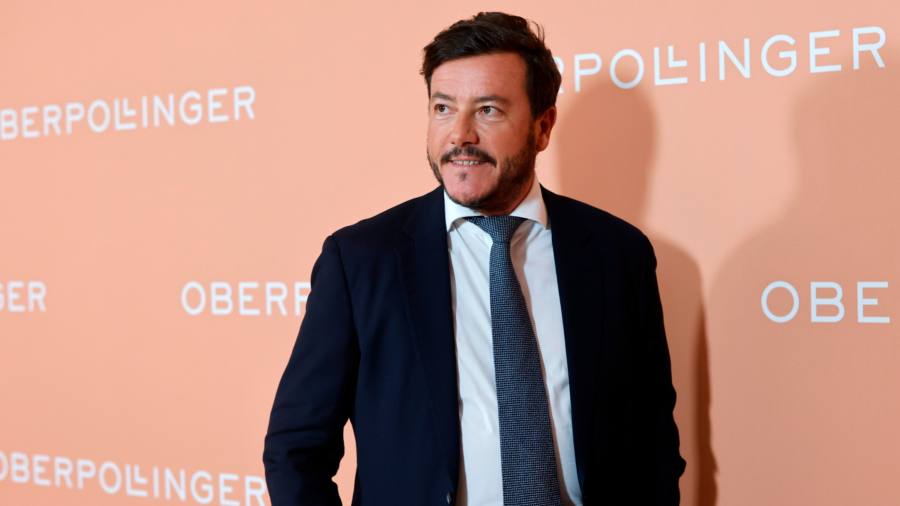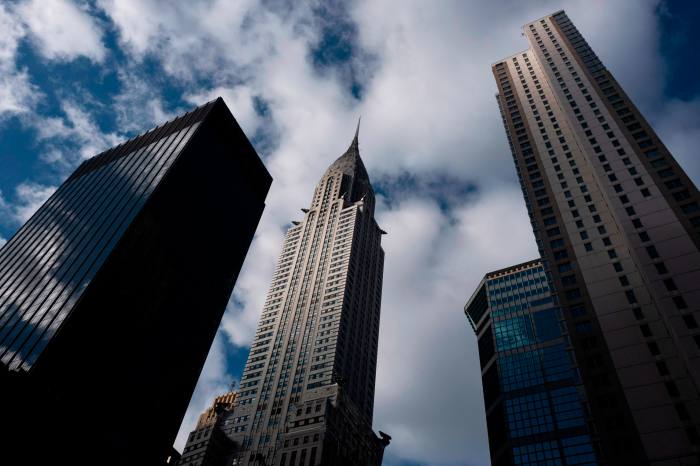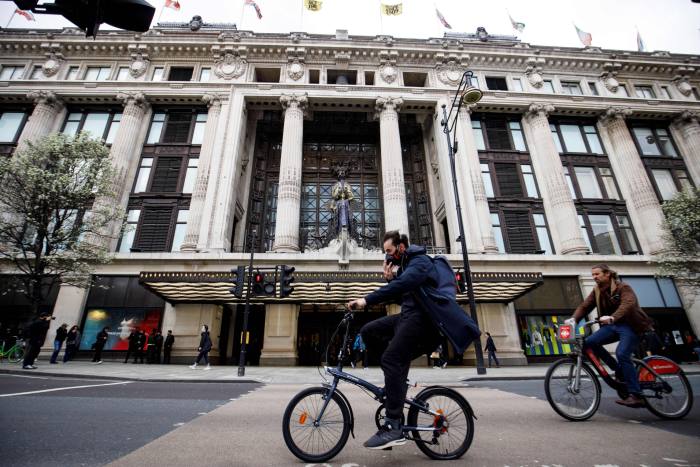
René Benko was talking to investors in Saudi Arabia when he found out the headquarters of his sprawling property empire, deep in the Alps, had been raided by a squad of Austrian police.
Benko, 45, may not be a global household name, but many of his buildings are.
The property conglomerate he controls is the co-owner of London’s upmarket department store Selfridges. It owns half of New York’s Chrysler Building. In Germany, it has the department store KaDeWe, as well as the Galeria Karstadt Kaufhof chain, the country’s largest, which employs more than 24,000 people.
Add to this dozens of other buildings — luxury hotels, resorts, offices; in Munich, Venice, Vienna and Zurich — and the portfolio of Benko’s Signa Group, and its hundreds of subsidiaries, trusts and holding companies is worth close to €30bn on paper.
He likes to joke that only two people have more prestigious real estate under their control in Europe: the British monarch and the pope.
This week, however, the sense of invulnerability that has long cloaked Benko, who is also one of Europe’s most politically connected billionaires, was rudely punctured.
Signa’s offices in sleepy Innsbruck, Benko’s hometown, were in panic mode, one insider said, as police downloaded years’ worth of email inboxes and hauled out stacks of documents, all at the behest of Austria’s state prosecutor for economic crime and corruption (WKStA).
Benko is the latest Austrian establishment figure to become ensnared in the WKStA’s sprawling, multiyear investigation into corruption at the heart of government — a probe that only last year toppled the government of the young conservative chancellor, and former Benko ally, Sebastian Kurz.
For Signa and Benko, it is an unwelcome distraction. They, like others close to Kurz, believe the WKStA is pursuing a nakedly political agenda aimed at Austria’s conservative establishment.
The scandal comes at a tricky juncture: longstanding doubts over the complex financial engineering that underpins Signa’s rapid expansion have become harder to allay, as many retail and hospitality businesses across Europe have struggled to recover from the pandemic and must now contend with a looming recession.
Signa and Benko declined to comment for this article. But Signa’s responses to questions about the sustainability of its business model have been consistent over the years: prime properties are ultra-resilient. And no property portfolio is more prime than Signa’s.
“René Benko is very good at telling stories,” said Leonhard Dobusch, professor of management at the University of Innsbruck. “And those stories — about why his properties are worth so much, and [why] his business model is so successful — are compelling. He is undoubtedly a very good real estate investor. But Signa also has a highly financially-engineered model . . . and for outsiders it is very, very difficult to understand what is going on.”
Benko was born in 1977 into a modest household. His native Tyrol, of which Innsbruck is the regional capital, is archetypal Austria, all soaring Alps and lowing dairy cows.
His father worked for the city council and his mother was a kindergarten teacher. Their son did not excel at school. Aged 17, he quit and found a job with a local construction business. He struck out on his own four years later, with a bold development gambit that would set the pattern for his career.

He converted a series of attics in a local tenement block into luxury penthouse apartments, persuading reluctant residents on lower floors to agree to his plans by offering to install elevators at his expense. He fended off opposition by making the deal work for all stakeholders.
The final ingredient to power Benko’s rise — capital — soon followed. A millionaire friend of a new penthouse resident put down a small fortune to back Benko’s foray into property development.
Five years later, after a string of lucrative conversions, Benko, then 27, bought the venerable Kaufhaus Tyrol, a staid shopping centre in Innsbruck. He knocked it down and English architect Sir David Chipperfield was brought in to redesign it. Rents and the property’s valuation rocketed. For someone so young, especially in conservative Austria, it seemed a breathtakingly bold step.
Boom years followed, as Signa acquired prime properties across Austria as well as Germany, including KaDeWe. The complexity of Signa’s business model grew too. It was an investment bankers’ dream, recounted one Swiss banker, who recalled an almost limitless potential for earning fees on the ingenious structures Benko and Signa favoured to maximise their financial potential.
In 2013, the first serious problem for Benko arose. An Austrian court found him guilty of bribery, ruling that he had paid the former Croatian prime minister, Ivo Sanader, to intervene with Italian prime minister Silvio Berlusconi to quash a tax bill Signa was liable for in Milan.
The conviction forced Benko to formally step back from the day-to-day running of Signa. Behind the scenes, however, he has remained in charge.
As Signa’s portfolio grew — turning its founder into a multi-billionaire — so did Benko’s contact book.
“Benko became known for keeping close connections to politicians of the major parties,” said Stephanie Krisper, an Austrian parliamentarian with the country’s liberal Neos. “He put the former chancellor Alfred Gusenbauer of the [social democrats] on the board ,” she noted, “[and] he built a relationship with Sebastian Kurz.”
Kurz, a young iconoclast like Benko, would become chancellor of Austria at 31 in 2017. “He was soon a regular at Benko’s lavish parties,” Krisper said.
Benko even accompanied Kurz on foreign trips, including to Moscow and the Middle East, where he forged new business relationships.
In recent years, money has flown into Signa from such sources, in some cases even through Benko’s own private foundation in Liechtenstein. This has made it hard, if not impossible, to keep track of.
Signa has pointed out that it is a private company, and fulfils all of its reporting obligations. Its lenders and its investors, it has said, conduct their own extensive due diligence.

Benko’s last big deal — his acquisition of Selfridges for £4bn — is a case in point. Signa partnered with Thailand’s Central Group, a property mega-investor known for its careful selection of partners.
How the WKStA’s move against him will play out, remains to be seen.
“He used to get called an ‘Austrogarch’. He was seen as being untouchable,” said Marcus How, head of analysis at the Viennese risk consultancy VE Insight. “But particularly after the fall of Kurz, his reputation in the Austrian financial world has sunk. There’s a sense that he might be running out of road.”
Benko’s annual Törggelen, a traditional Tyrolean autumn party, used to be a highlight of the social season, How added. Chancellors and politicians would come to be photographed with him at the Signa-owned ultra-luxurious Park Hyatt in Vienna.
But it hasn’t been held since 2019. And even with the Covid-19 crisis over, it seems there are no plans for another one soon.